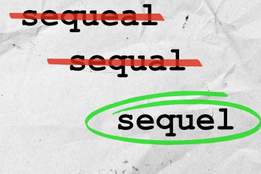Word of the Day
: October 3, 2024posterity
playWhat It Means
Posterity is a formal word that refers to all future generations of people. It is often, though not always, used with for or to.
// A record of the events was preserved for posterity.
// The truth about what happened was lost to posterity.
posterity in Context
“In that moment, Callie and I entered the full measure of our joy. We sang different versions of her little song a few times. Even recorded ourselves for posterity.” — Camille T. Dungy, Soil: The Story of a Black Mother’s Garden, 2023
Did You Know?
When you envision the future, what do you imagine people doing? Zooming about in flying cars? Taking interstellar vacations across the galaxy? Whatever those people of the future get up to, if you’re doing something for posterity, you’re doing it for them. Posterity has referred to all future generations in a general sense since the 16th century. When it was first used in the 14th century, however, posterity referred to all of someone’s offspring, down to the furthest generation. It’s this use we hear in the preamble to the US Constitution: “We the People ... in Order to ... secure the Blessings of Liberty to ourselves and our Posterity, do ordain and establish this Constitution for the United States of America.” Posterity comes—as all words do—not from the future but from the past, specifically from the Latin word posterus, meaning “coming after.” Other notable and perhaps surprising descendants of posterus include preposterous (“absurd”) and posterior (“buttocks”). Who could have foreseen that?
Test Your Vocabulary
Rearrange the letters to form an adverb that means “in some future time or state”: FARTHEERE
VIEW THE ANSWER










